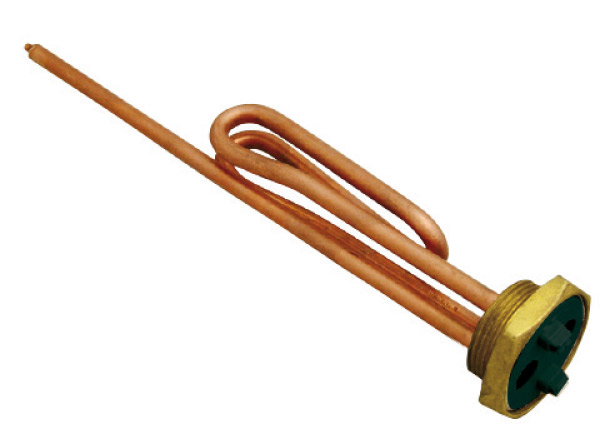A controlled process for the production of tubular electric heaters
The assembly of the tubular electric heaters with components manufactured on last generation machines ensures their durability.

The production and assembly of the components manufactured in its own plants enables GNALI BOCIA to supply his clients with a broad personalization level for tubular electric heaters, being versatile components for heating the water in health circuits especially.
The coupling of the annealed copper pipes of the tubular electric heaters is effective thanks to the precision by which the brass is turned and perforated so as to obtain the flanges, being a material which is manufactured on last generation machines capable of ensuring compliance with especially strict tolerances.
When tubular electric heaters are planned and realized, it is necessary to verify that the specific power never exceeds 9 watt/cm2, as that guarantees an optimal distribution of the heat, and especially a reduction of the noisiness caused by the creation of bubbles to the full advantage of home comfort.
In the catalogue, we find a wide range of these tubular electric heaters for immediate supply, which are able to adapt to all the applications, even those in which resistance to corrosion is tested severely, since it is in fact always possible to foresee the assembly of magnesium sacrificial anodes so as to alleviate that problem.
A helping hand to the perfect realization of these components comes moreover from the quality management system based on the dictates of the ISO9001-2008 table.
The coupling of the annealed copper pipes of the tubular electric heaters is effective thanks to the precision by which the brass is turned and perforated so as to obtain the flanges, being a material which is manufactured on last generation machines capable of ensuring compliance with especially strict tolerances.
When tubular electric heaters are planned and realized, it is necessary to verify that the specific power never exceeds 9 watt/cm2, as that guarantees an optimal distribution of the heat, and especially a reduction of the noisiness caused by the creation of bubbles to the full advantage of home comfort.
In the catalogue, we find a wide range of these tubular electric heaters for immediate supply, which are able to adapt to all the applications, even those in which resistance to corrosion is tested severely, since it is in fact always possible to foresee the assembly of magnesium sacrificial anodes so as to alleviate that problem.
A helping hand to the perfect realization of these components comes moreover from the quality management system based on the dictates of the ISO9001-2008 table.
19/03/2015
I contenuti di questo sito non hanno carattere di periodicità e non rappresentano 'prodotto editoriale'.








